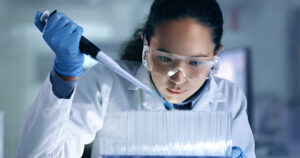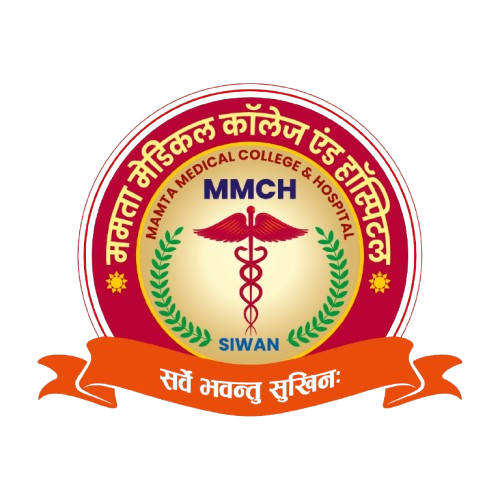
🧫 Department of Microbiology
Mamta Medical College & Hospital, Siwan (MMCH)
The Department of Microbiology at Mamta Medical College & Hospital, Siwan, is an essential pillar in the medical curriculum, dedicated to teaching, diagnostics, infection control, and research. Microbiology bridges basic sciences with clinical medicine by equipping students with the knowledge and practical skills needed to understand, diagnose, and manage infectious diseases — a critical area in today’s healthcare landscape.
Our department is committed to academic excellence, patient safety, and public health. It provides MBBS students with robust training in bacteriology, virology, parasitology, mycology, immunology, and applied clinical microbiology. With an integrated teaching approach, modern labs, and experienced faculty, we prepare future doctors to meet the challenges of infectious diseases and antimicrobial resistance head-on.
🧬 What is Microbiology?
Medical Microbiology is the study of microorganisms (bacteria, viruses, fungi, and parasites) that cause diseases in humans. It encompasses their classification, structure, function, pathogenicity, diagnosis, treatment, and prevention.
Key learning outcomes for students:
Understand the etiology and pathogenesis of infectious diseases
Learn various laboratory diagnostic methods
Interpret microbiological findings to make clinical decisions
Gain insight into antibiotic resistance, vaccination, and infection control
Develop critical skills in laboratory safety and hygiene
The subject is taught in the 3rd to 5th semesters (Second MBBS) in accordance with the CBME (Competency-Based Medical Education) guidelines issued by the National Medical Commission (NMC).
🏥 Infrastructure & Facilities
The Department of Microbiology at MMCH Siwan boasts a modern setup with fully functional laboratories, classrooms, and diagnostic units that support both teaching and hospital-based services.
Key Facilities:
Central Microbiology Laboratory with culture, staining, and diagnostic capabilities
Separate labs for Bacteriology, Virology, Mycology, Parasitology, and Immunology
Advanced equipment: Incubators, autoclaves, ELISA readers, biosafety cabinets, anaerobic culture systems
Demo Rooms with audio-visual teaching aids
Dedicated Microbiology Museum with microbial models, charts, and specimens
Computerized reporting systems and record-keeping for diagnostic labs
Infection control and biomedical waste management practices
🧪 Laboratories & Practical Training
Our focus is on hands-on skill development, ensuring students understand how to handle specimens, perform laboratory techniques, and interpret reports accurately.
🔹 Bacteriology Lab
Gram staining, acid-fast staining, culture on media (blood agar, MacConkey, etc.)
Identification of common bacterial pathogens
Antimicrobial sensitivity testing (AST) using Kirby-Bauer disc diffusion
🔹 Virology Unit
Viral culture principles, specimen handling
ELISA for viral markers (HIV, HBV, HCV)
Molecular techniques in collaboration with diagnostic labs
🔹 Mycology Lab
KOH mount preparation
Fungal culture and identification
Common clinical fungi like Candida, Aspergillus, Dermatophytes
🔹 Parasitology Lab
Stool microscopy for helminths and protozoa
Blood smears for malaria, filariasis
Wet mount and concentration techniques
🔹 Immunology Lab
Serological tests: Widal, VDRL, CRP, ASO, Rheumatoid factor
Immunodiffusion and ELISA
Introduction to basic concepts of autoimmunity and hypersensitivity
🎓 Teaching Methodologies
We employ a blend of traditional and innovative teaching strategies that cater to different learning styles and promote clinical reasoning.
Our Approach:
📚 Interactive lectures with visual presentations and animations
🧑🤝🧑 Small group discussions (SGDs) and tutorials for detailed concept building
🧪 Practical sessions and live demonstrations in labs
🏥 Clinico-Microbiological Correlation (CMC) to relate lab findings to clinical cases
💡 Case-Based Learning (CBL) and Problem-Based Learning (PBL)
📝 Logbooks, assignments, and regular assessments
🧠 Emphasis on critical thinking and infection prevention
🧫 Diagnostic & Clinical Services
The Department of Microbiology plays a vital role in the diagnostic services of the MMCH hospital, supporting clinicians in the identification and management of infections.
Services Offered:
Routine bacterial cultures and sensitivity testing
Serological diagnosis for typhoid, HIV, hepatitis, dengue, and more
Microscopy and staining techniques
Parasitology reporting for stool and blood specimens
Fungal smear and culture reporting
Virological testing via ELISA and rapid kits
Infection control surveillance and outbreak investigation support
🦠 Infection Control & Public Health
Microbiology is crucial in hospital infection control and public health practices. Our department actively participates in:
Hospital Infection Control Committee (HICC)
Monitoring nosocomial infections
Training hospital staff on hand hygiene, sterilization, and biomedical waste
Supporting outbreak containment (e.g., COVID-19, dengue, viral hepatitis)
Promoting vaccination awareness among patients and healthcare workers
🌐 Vision & Mission
Vision:
To be a center of excellence in medical microbiology education and diagnostic services, empowering students with skills to prevent and manage infectious diseases.
Mission:
Promote competency-based education in microbiology
Ensure patient safety through quality diagnostics
Foster research and innovation in microbiology
Strengthen infection control practices within the hospital
Contribute to national health goals and antimicrobial stewardship
